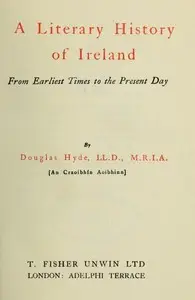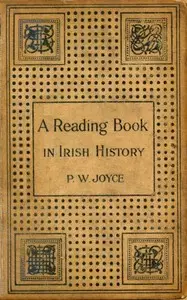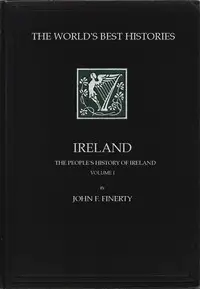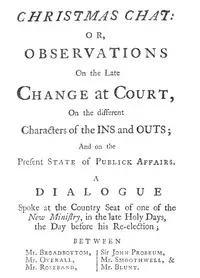"A Popular History of Ireland: from the Earliest Period to the Emancipation of the Catholics" by Thomas D'Arcy McGee is a history book about Ireland's journey through time, especially its battles and big accomplishments. The book wants Irish people to learn about their past and shows how Ireland is important to the world. McGee paints a picture of Ireland as a country that wants to be strong and respected again, even after facing many tough times. The story starts by celebrating the heart and soul of Ireland, focusing on how its people stayed strong through the years. McGee walks the reader through different parts of Ireland's story, like its first people, old stories, and the big changes that came with Christianity and leaders like St. Patrick. This beginning part is meant to get readers excited and proud of their country's past, setting the stage for a deep study of Ireland's history.

A Popular History of Ireland : from the Earliest Period to the Emancipation of the Catholics — Volume 1
By Thomas D'Arcy McGee
Witness the epic saga of a resilient nation striving to reclaim its heritage, from ancient legends to transformative faith, against a backdrop of relentless oppression.
Summary
About the AuthorThomas D'Arcy McGee was an Irish-Canadian politician, Catholic spokesman, journalist, poet, and a Father of Canadian Confederation. The young McGee was an Irish Catholic who opposed British rule in Ireland, and was part of the Young Ireland attempts to overthrow British rule and create an independent Irish Republic. He escaped arrest and fled to the United States in 1848, where he reversed his political beliefs. He became disgusted with American republicanism, Anti-Catholicism, and Classical Liberalism. McGee became intensely monarchistic in his political beliefs and in his religious support for the embattled Pope Pius IX.
Thomas D'Arcy McGee was an Irish-Canadian politician, Catholic spokesman, journalist, poet, and a Father of Canadian Confederation. The young McGee was an Irish Catholic who opposed British rule in Ireland, and was part of the Young Ireland attempts to overthrow British rule and create an independent Irish Republic. He escaped arrest and fled to the United States in 1848, where he reversed his political beliefs. He became disgusted with American republicanism, Anti-Catholicism, and Classical Liberalism. McGee became intensely monarchistic in his political beliefs and in his religious support for the embattled Pope Pius IX.














